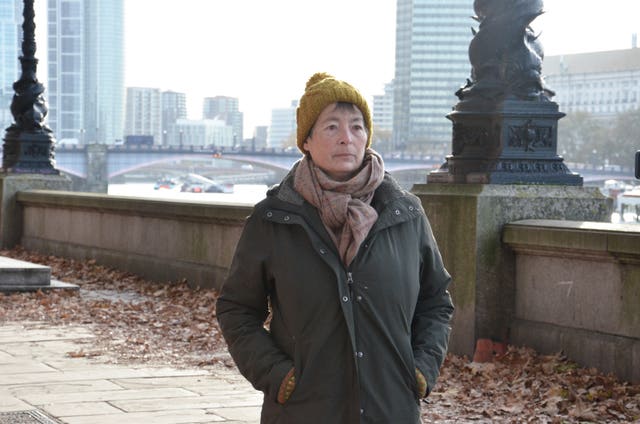Terminally ill criticise longer four-year timeframe for assisted dying service
The new implementation period is double what was originally proposed when the Bill was published last year.

A potential four-year wait for an assisted dying service to be up and running if a law passes in England and Wales has been branded “unreasonable” by campaigners as terminally ill people said they need “dignity, not delays”.
The maximum time by which all parts of a new assisted dying law would have to come into force if a Bill being considered at Westminster is approved has been doubled after a committee voted in favour of extending the timeframe.
If the Bill was to pass later this year that would mean it might not be until 2029, potentially coinciding with the end of this Government’s parliament, that assisted dying was being offered.

When revealed last week, the change was described as a “retrograde step” and “outrageous” by two terminally ill supporters of legalising assisted dying.
Mother-of-two Clare Turner, who has stage four cancer, said: “Every delay means more suffering, more people forced to endure unbearable pain against their will.”
She said she and others “deserve dignity, not delays”.

Kim Leadbeater, the Labour MP behind the Bill, said she was proposing the longer timeframe “with some reluctance” and acknowledged the upset felt by campaigners for change.
She suggested the establishment of expert panels to consider assisted dying applications, in place of the High Court approval which was scrapped from the Bill in a significant change earlier this month, had contributed to more time being needed.
While stating that it is important to “dedicate the necessary time” to implementing safeguards in the Bill, she also noted the “upset and disappointment many people will feel as a result of a potentially longer commencement period”.
She insisted the four-year timeframe is “a backstop, it’s not a target” as she pledged to “hold the Government’s feet to the fire” on implementing legislation should the Bill pass.
Fellow Labour MP Jess Asato, who voted against the Bill when it was first put before all MPs in November, said the “last-minute switch demonstrates again just how chaotic this whole process has been with substantial last-minute changes to core sections of the Bill”.
She added: “Putting an arbitrary timeline on such a complex issue was never a sensible way to make life or death legislation.”
Tuesday’s final committee session also saw the approval of the establishment of a voluntary assisted dying commissioner alongside three-member panels featuring social workers, psychiatrists and legal professionals to approve applications from terminally ill adults.
Ms Leadbeater has faced criticism from opponents of assisted dying for scrapping a High Court judge safeguard, which had initially been hailed for making the Bill the strictest in the world.
Speaking at the conclusion of the committee’s last session, Ms Leadbeater said: “Support for a judge-led multi-disciplinary panel came from experts who gave evidence and has received strong backing across all parties, including from committee members who were previously opposed to the Bill.
“We are not removing judges from this process. Rather, we are adding the expertise and experience of psychiatrists and social workers to provide extra protections in the areas of assessing mental capacity and detecting coercion while retaining judicial oversight.”
It has been suggested some MPs who supported the Bill in the Commons in November could change their stance when it returns for a further vote in the coming months, after the change to the High Court safeguard.
But Ms Leadbeater has claimed the Terminally Ill Adults (End of Life) Bill, as amended, is now “safer, fairer, and more workable”.
A majority of committee members also approved new measures under the Bill, which would see assisted dying available free on the NHS.
Ms Leadbeater said this would give choice to all but leading opponent Danny Kruger argued it fundamentally changes the principles on which the health service was founded.
The Conservative MP said the NHS would, if the Bill passes into law, become the “national health and assisted suicide service” as he accused those behind it of taking a “red pen to Bevan’s legacy”, referring to the NHS’s chief architect Aneurin “Nye” Bevan.
The two new clauses impose a duty on a Secretary of State in England and give power to ministers in Wales, where health is devolved, to ensure the provision of voluntary assisted dying services.
Ms Leadbeater said it is “crucial that the option of a voluntary assisted death remains part of a holistic approach to end-of-life care” and added that private provision should also be available.
She told MPs: “NHS trusts and ICBs (integrated care boards) may, as they already do, use private providers in some circumstances.
“This provides flexibility, which is important, but chair, what matters is that the safeguards and protections in this Bill will apply no matter where the service is supplied.”
She added that the same requirements will apply to all medical practitioners that they “cannot benefit financially or in any material way from the death of a person and can only receive reasonable remuneration for providing a service”.





